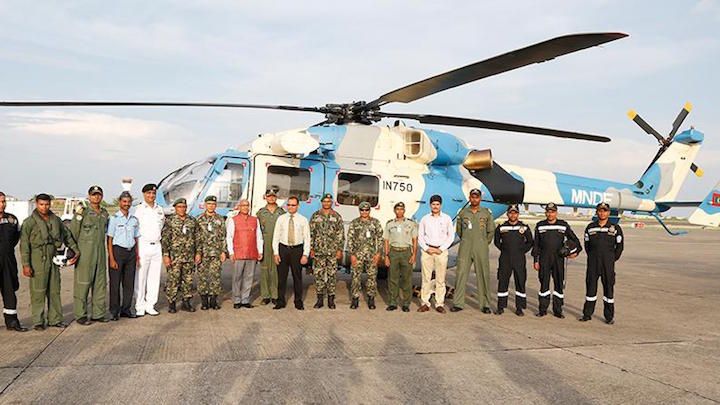India gifts second helicopter to Maldives
The Indian government gifted a second helicopter to the Maldivian military last week following the signing of an Indo-Maldives defence action plan in April.

01 May 2016, 09:00
The Indian government gifted a second helicopter to the Maldivian military last week following the signing of an Indo-Maldives defence action plan in April.
After greeting Indian air force officers who arrived with the helicopter at the Ibrahim Nasir International Airport on Wednesday, Defence Minister Adam Shareef Umar told reporters that the new aircraft will be used to transport patients as well as in search and rescue operations.
“Unlike normal helicopters, this one is fully air-conditioned and equipped with facilities to identify people at a distance,” he was quoted as saying by Sun Online.
Shareef added that the military is expecting new aeroplanes from India, Pakistan, and China.
Become a member
Get full access to our archive and personalise your experience.
Already a member?
Discussion
No comments yet. Be the first to share your thoughts!
No comments yet. Be the first to join the conversation!
Join the Conversation
Sign in to share your thoughts under an alias and take part in the discussion. Independent journalism thrives on open, respectful debate — your voice matters.




